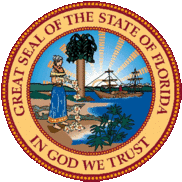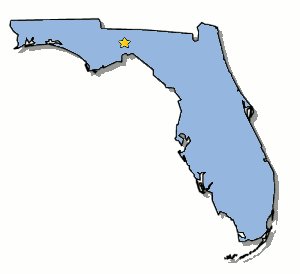 Amy and Scott Kehoe were unable to have children of their own. So they went to great lengths to hand pick an egg donor, sperm donor, and surrogate for their future child. They then hired a Michigan IVF clinic to carry out the procedure. The couple paid for everything out of pocket. But a month after the surrogate gave birth to twins, Ethan and Bridget, the Kehoes were forced to turn the children back over to the surrogate mother, Laschell Baker, who changed her mind about turning over custody of the children when she found out that Ms. Kehoe was under treatment for a mental illness. Ms. Baker, who already has four children of her own with her husband Paul, said she couldn’t live the rest of her life worrying whether Ms. Kehoe’s illness would remain under control.
Amy and Scott Kehoe were unable to have children of their own. So they went to great lengths to hand pick an egg donor, sperm donor, and surrogate for their future child. They then hired a Michigan IVF clinic to carry out the procedure. The couple paid for everything out of pocket. But a month after the surrogate gave birth to twins, Ethan and Bridget, the Kehoes were forced to turn the children back over to the surrogate mother, Laschell Baker, who changed her mind about turning over custody of the children when she found out that Ms. Kehoe was under treatment for a mental illness. Ms. Baker, who already has four children of her own with her husband Paul, said she couldn’t live the rest of her life worrying whether Ms. Kehoe’s illness would remain under control.
Surrogacy is largely unregulated, and is controlled mostly by fertility doctors. In some states, the parents must legally adopt the surrogate child, but it creates an interesting legal conundrum, as the parents must first create the baby, which is not genetically related to them, and then ask the courts to grant them custody after the child is born. In other states, the parents are allowed to place their own names on the birth certificate without any screening, if they obtain a pre-birth order allowing it.
If a dispute arises, the outcome varies widely from state to state. In Michigan, the state holds that surrogacy is contrary to public policy and that surrogacy contracts are not enforceable, which is how Ms. Baker so easily had the Kehoe’s guardianship rescinded. Find out more about this child custody case and others like it at Building a Baby, With Few Ground Rules.
 A Florida state law that banned gay men and lesbians from adoption has been struck down by the Florida 3rd District Court of Appeals in a unanimous decision that upheld a trial court ruling that the ban was unconstitutional because it violates equal protection under the law.
A Florida state law that banned gay men and lesbians from adoption has been struck down by the Florida 3rd District Court of Appeals in a unanimous decision that upheld a trial court ruling that the ban was unconstitutional because it violates equal protection under the law. Jacksonville Divorce Lawyer Blog
Jacksonville Divorce Lawyer Blog


 Robert Lamarche has become the fourth gay Floridian to
Robert Lamarche has become the fourth gay Floridian to 


 Amy and Scott Kehoe were unable to have children of their own. So they went to great lengths to hand pick an egg donor, sperm donor, and surrogate for their future child. They then hired a Michigan IVF clinic to carry out the procedure. The couple paid for everything out of pocket. But a month after the surrogate gave birth to twins, Ethan and Bridget, the Kehoes were forced to turn the children back over to the surrogate mother, Laschell Baker, who changed her mind about turning over custody of the children when she found out that Ms. Kehoe was under treatment for a mental illness. Ms. Baker, who already has four children of her own with her husband Paul, said she couldn’t live the rest of her life worrying whether Ms. Kehoe’s illness would remain under control.
Amy and Scott Kehoe were unable to have children of their own. So they went to great lengths to hand pick an egg donor, sperm donor, and surrogate for their future child. They then hired a Michigan IVF clinic to carry out the procedure. The couple paid for everything out of pocket. But a month after the surrogate gave birth to twins, Ethan and Bridget, the Kehoes were forced to turn the children back over to the surrogate mother, Laschell Baker, who changed her mind about turning over custody of the children when she found out that Ms. Kehoe was under treatment for a mental illness. Ms. Baker, who already has four children of her own with her husband Paul, said she couldn’t live the rest of her life worrying whether Ms. Kehoe’s illness would remain under control.